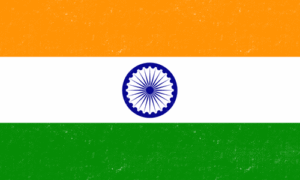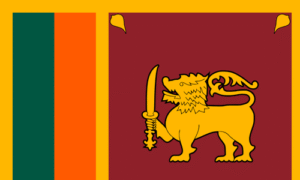Table of Contents
Court marriage in Nepal offers a legal and straightforward way for Punjabi nationals to formalize their union. This process, governed by Nepal’s Marriage Registration Act 2028 (1971), provides a secular alternative to traditional religious ceremonies. For Punjabi couples seeking to marry in Nepal, understanding the legal requirements, necessary documents, and procedural steps is crucial. This comprehensive guide explores the intricacies of court marriage for Punjabi nationals in Nepal, covering everything from eligibility criteria to post-marriage formalities.
Legal Framework for Court Marriage in Nepal
Marriage Registration Act 2028 (1971)
The Marriage Registration Act 2028 (1971) is the primary legislation governing court marriages in Nepal. This act provides the legal basis for civil marriages, outlining the procedures, requirements, and rights of couples opting for court marriage. Under this law, marriages can be solemnized without religious ceremonies, making it particularly relevant for inter-faith couples or those preferring a secular union. The act ensures that court marriages are legally recognized and afford the same rights and responsibilities as traditional marriages.
Eligibility Criteria for Court Marriage
To be eligible for court marriage in Nepal, both parties must meet specific criteria set by Nepali law. The legal age for marriage is 20 years for both men and women, as per the Civil Code 2074 (2017). Neither party should be currently married, and they must be of sound mind. For Punjabi nationals, additional requirements include valid passports, visas, and necessary permissions from their home country. It’s crucial to note that Nepal recognizes same-sex marriages, making it a potential destination for LGBTQ+ couples from Punjab seeking legal recognition of their union.
Rights and Responsibilities in Court Marriage
Court marriages in Nepal confer equal rights and responsibilities to both spouses. This includes rights related to property, inheritance, and child custody. The Civil Code 2074 (2017) ensures gender equality in marriage, prohibiting discrimination based on sex. For Punjabi nationals marrying in Nepal, it’s important to understand that these rights may differ from those in their home country. Couples should consult legal experts to understand how their marriage in Nepal will be recognized and what rights it confers in Punjab and India.
Required Documents for Court Marriage
Passport and Visa Requirements
For Punjabi nationals seeking court marriage in Nepal, valid passports and appropriate visas are mandatory. The passport should have at least six months of validity beyond the intended stay in Nepal. Depending on the purpose and duration of stay, couples may need to obtain specific visas, such as tourist visas or marriage visas. It’s advisable to check with the Nepali embassy or consulate in India for the most up-to-date visa requirements and application procedures.
Proof of Single Status
Both parties must provide proof of their single status. For Punjabi nationals, this typically involves obtaining a ‘Certificate of No Impediment’ or a similar document from their local authorities in Punjab. This certificate confirms that there are no legal obstacles to the individual’s marriage. In some cases, an affidavit declaring single status, duly notarized, may be accepted. It’s crucial to have these documents authenticated and translated into English or Nepali if they are in Punjabi or Hindi.
Additional Required Documents
Other essential documents include birth certificates, passport-sized photographs, and proof of address. If either party has been previously married, divorce papers or death certificates of former spouses must be provided. For Punjabi nationals, it’s advisable to have all Indian documents attested by the Ministry of External Affairs in India and then by the Nepali Embassy. Some local municipalities in Nepal may require additional documents, so it’s wise to check with the specific office where you plan to register your marriage.
Procedure for Court Marriage in Nepal
Step 1: Document Preparation
Gather all required documents, including passports, visas, proof of single status, birth certificates, and photographs. Ensure all documents are valid and properly authenticated.
Step 2: Arrival in Nepal
Enter Nepal with the appropriate visa. It’s advisable to arrive a few days before the intended marriage date to allow time for any unforeseen delays.
Step 3: Local Registration
Visit the local municipality office (Ward Office) in the area where you plan to register your marriage. Inform them of your intention to marry and inquire about any specific local requirements.
Step 4: Application Submission
Submit the marriage application form along with all required documents at the designated municipal office. Pay the necessary fees for marriage registration.
Step 5: Witness Arrangement
Arrange for two witnesses who will be present during the marriage registration. These can be Nepali citizens or other foreign nationals with valid visas.
Step 6: Marriage Solemnization
On the appointed day, appear before the registrar with your witnesses. The registrar will review all documents and may ask questions to ensure the marriage is consensual.
Step 7: Certificate Issuance
After the solemnization, the registrar will issue a marriage certificate. This document is crucial and should be safely preserved.
Step 8: Post-Marriage Formalities
Register your marriage at your country’s embassy in Nepal. This step is important for recognition of your marriage in Punjab and India.
Legal Implications and Recognition
Recognition of Nepal Court Marriage in Punjab
Court marriages performed in Nepal are generally recognized in Punjab and other parts of India under the principle of private international law. However, it’s crucial to register the marriage with the Indian embassy in Nepal and later with local authorities in Punjab to ensure full legal recognition. The Foreign Marriage Act, 1969, governs the recognition of marriages of Indian nationals performed abroad. Couples should be aware that while their marriage is legal in Nepal, they may need to fulfill additional requirements for it to be fully recognized in Punjab.
Property and Inheritance Rights
Court marriages in Nepal grant equal property and inheritance rights to both spouses. However, Punjabi nationals should be aware that these rights might differ from those in their home state. It’s advisable to consult legal experts in both Nepal and Punjab to understand how marriage in Nepal affects property rights, especially for assets held in India. The Hindu Succession Act, 1956, and its amendments govern inheritance rights for Hindus in India, which may apply differently to marriages solemnized abroad.
Divorce and Custody Matters
In the event of divorce, couples married in Nepal may face complex legal situations. While Nepal’s laws would apply to the dissolution of the marriage, enforcement of divorce decrees and custody arrangements in Punjab might require additional legal procedures. The Divorce Act, 1869, and the Guardian and Wards Act, 1890, are relevant Indian laws that may come into play. It’s crucial for couples to understand the implications of their Nepal court marriage on potential future legal matters in both countries.
Cultural Considerations and Challenges
Integrating Punjabi Traditions with Nepali Court Marriage
While court marriage in Nepal is a civil procedure, many Punjabi couples may wish to incorporate elements of their cultural traditions. This can be challenging but not impossible. Some couples choose to have a small traditional ceremony before or after the legal court marriage. It’s important to note that while these cultural ceremonies hold personal and social significance, only the court marriage is legally binding in Nepal.
Family Acceptance and Social Implications
Court marriages, especially those conducted abroad, can sometimes face resistance from traditional Punjabi families. Couples may need to navigate complex family dynamics and social expectations. Open communication with family members about the reasons for choosing a court marriage in Nepal can help in gaining acceptance. It’s also worth considering the long-term implications on family relationships and social standing in the Punjabi community.
Language and Cultural Barriers
Punjabi nationals may encounter language barriers during the court marriage process in Nepal. While English is widely used in official procedures, some documents and interactions may be in Nepali. It’s advisable to hire a translator or seek assistance from the Indian embassy if needed. Understanding Nepali cultural nuances and bureaucratic processes can also be challenging, making it important to research thoroughly or seek help from local experts.
Post-Marriage Formalities and Documentation
Registering Marriage in Punjab
After completing the court marriage in Nepal, it’s crucial to register the marriage in Punjab. This involves submitting the Nepali marriage certificate, along with other required documents, to the local registrar’s office in Punjab. The process falls under the Punjab Compulsory Registration of Marriages Act, 2012, which mandates the registration of all marriages solemnized in the state or involving Punjab residents.
Updating Personal Documents
Following the marriage, both spouses should update their personal documents to reflect their marital status. This includes passports, Aadhaar cards, PAN cards, and other official identification documents. For women who choose to change their surnames, this process is particularly important. It’s advisable to start with updating the passport, as it’s often required for changing other documents.
Tax and Financial Considerations
Marriage can have significant implications on tax filings and financial matters. Punjabi nationals who marry in Nepal should consult with tax experts in India to understand how their new marital status affects their tax obligations. This may include changes in income tax filing status, potential tax benefits, and considerations for joint financial planning.
Conclusion
Court marriage in Nepal offers Punjabi nationals a viable option for legalizing their union, especially for those seeking a secular ceremony or facing obstacles in their home state. While the process is straightforward, it requires careful planning, thorough documentation, and an understanding of both Nepali and Indian legal systems. By following the outlined procedures and considering the various legal and cultural implications, Punjabi couples can successfully navigate the court marriage process in Nepal. It’s always advisable to seek professional legal counsel to ensure compliance with all relevant laws and to address any specific concerns or unique circumstances. A well-executed court marriage in Nepal can provide Punjabi couples with a strong legal foundation for their union, recognized both in Nepal and back home in Punjab.
READ MORE:
- How to Get Married in Nepal
- Can a Nepali Marry a Foreigner?
- Translation of Foreign Marriage Acts in Nepal
- Court Marriage for Indians in Nepal
- Court Marriage of NRN in Nepal
- Court Marriage of Punjabi Nationals in Nepal
- How to Do Court Marriage in Kathmandu
- Where to Go for Court Marriage in Nepal
- Legal Age for Court Marriage in Nepal
- Obtaining Marriage Certificate in Nepal
- Marriage Registration in Nepal with Foreigner
- Online Court Marriage in Nepal
- Online Marriage Registration in Nepal
- Court Marriage Lawyer in Nepal
- Court Marriage Process in Nepal





























